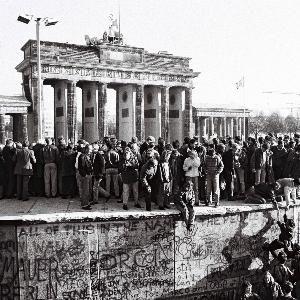No end to history
18 Jul 2022
Universalism and particularism: In a project funded by the German Research Foundation (DFG), historians at LMU examine the conflict-ridden period after 1989 from a fresh angle.
18 Jul 2022
Universalism and particularism: In a project funded by the German Research Foundation (DFG), historians at LMU examine the conflict-ridden period after 1989 from a fresh angle.

When the Iron Curtain was torn down: At the Brandenburger Gate, Berlin, 9 Nov 1989 | © Andreas Gora/Imago-Images
When the Iron Curtain was torn down, expectations ran high that the revolutionary upheavals of 1989–91 would see “Western,” liberal, and democratic principles spread throughout Europe and beyond. By the dawn of the new millennium at the latest, it became clear that such a universal trend would not take root and flourish everywhere. Liberal ideas increasingly found themselves competing with other models. Indeed British historian Timothy Garton Ash sees in the sum of these (particularist) tendencies an “anti-liberal counterrevolution” that triggered new regional and global conflicts. On every side, we now see populist movements that revolve around national, ethnic, regional or even religious characteristics. This is precisely the entry point of the new research group “Universalism and particularism in contemporary European history.” Have we reached the moment at which two distinct epochs change hands? Or is this, as the Munich academics believe, a “continuation of the simultaneity, the synchronicity, the overlap between different universalisms and particularisms”?
In setting out their agenda, the Munich academics note that research in recent history has primarily borrowed methods from the social and political sciences, whereas historical analysis and interpretation of the period remains, to some extent, in its early days. In effect, their project plans to draw a new map of contemporary history, plotting their analysis along the opposing axes of universalism and particularism. In so doing, they aim to historicize the recent past and bring together the sharply segregated debates that have so far unfolded along geographical and thematic lines. This, they hope, will produce a more condensed and nuanced but also broader account of contemporary history that could contribute to a better understanding of present-day challenges.
The project is funded by the German Research Foundation (DFG) as a Center for Advanced Studies in the Humanities and Social Sciences. Its spokesperson is Professor Martin Schulze Wessel, Chair of Eastern and South Eastern European History at LMU. Other researchers include Professor Kiran Klaus Patel, Chair of 19th- and 20th-Century European History at LMU, and Professor Andreas Wirsching, Chair of Recent Contemporary History at LMU and Director of the Leibniz Institute for Contemporary History, Munich-Berlin.